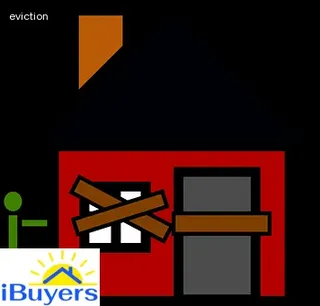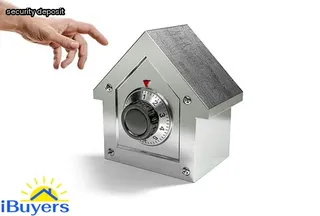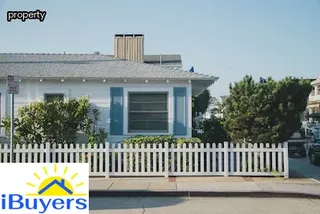In Illinois, landlords have certain rights and responsibilities when dealing with tenant damage to a rental property. Tenant damage can range from minor cosmetic issues to more serious structural problems, such as broken windows or damaged walls.
Landlords must ensure that their tenants understand the terms of their lease agreement and the possible consequences of causing damage to the property. They also need to be aware of their tenants' right to repair any damages caused by normal wear and tear before being charged for the repairs.
Understanding the law and the rights of both parties involved is key in ensuring a successful relationship between landlord and tenant. It is important for landlords to document all damages, keep accurate records of all written notices or conversations regarding repairs or payment, and take photographs or video recordings to establish proof of existing damages before a tenant moves in.
Furthermore, landlords should consider seeking legal advice if they are unsure about how to handle specific instances of tenant-caused property damage or if they have any questions about their rights under Illinois law.

As a landlord in Illinois, it's important to understand the terms of your lease agreement and the repair responsibilities that come with it. Generally speaking, tenants are responsible for minor repairs such as changing lightbulbs or unclogging drains, while landlords are generally responsible for more significant repairs when they impact the tenant’s ability to use the premises safely and comfortably.
This can include anything from major plumbing issues to HVAC repairs. In addition to understanding what types of repairs you may need to make, you should also familiarize yourself with specific lease provisions related to damage caused by tenants.
Many leases will require tenants to cover repair costs due to damages that have been caused by their negligence or intentional act – though this will depend on the details of your lease agreement. Depending on your situation, you may choose to provide insurance coverage for any property damage that occurs during tenancy.
This way, you can be sure that both parties are protected if an issue arises.
When renting out a property in Illinois, it is important for landlords to be able to distinguish between normal wear and tear and damage caused by tenants. Normal wear and tear is the gradual deterioration of a property that occurs over time due to everyday use, while damage can be caused by intentional or unintentional actions of a tenant.
Wear and tear can include things like fading paint, minor carpet stains, worn out countertops, etc. Damage may include broken windows, holes in the walls, or destroyed flooring.
Establishing the difference between normal wear and tear and damage is important for landlords so they can properly assess the security deposit owed to them at the end of a tenant's lease. It's also important for tenants to understand what qualifies as normal wear and tear so they are not charged an excessive amount for damages that were already there before their tenancy began.

When dealing with property damage in Illinois, it is important for landlords to understand the legal requirements surrounding security deposits and how they can be applied to repairs. Security deposits can be used to cover the cost of any damages caused by a tenant that exceed normal wear and tear.
Landlords are legally obligated to provide written notice of the amount of the security deposit and how it may be used within 45 days of collecting it. If a landlord does not use all or part of the security deposit for repairs, they must return the remaining funds to their tenant within 30 days after they vacate the property.
The costs associated with repair work can often exceed a security deposit, in which case landlords should consider other methods such as deduction from rent or charging additional fees. Landlords must also be aware that any deductions made from a security deposit must be itemized, including an explanation and receipts for services rendered.
It is important for landlords to remain compliant with state laws when dealing with property damage in Illinois.
When dealing with property damage in Illinois, it is important for landlords to document the costs of repairs. This can involve obtaining estimates from a qualified contractor and keeping receipts for materials and labor.
Landlords should keep records of all communication with tenants and contractors related to the repair work. All contracts should be signed and dated, including those with tenants and contractors.
If a tenant has caused the damage, the landlord should also keep a record of any payments made by the tenant as part of an agreement to cover the cost of repair work. Additionally, it is important for landlords to ensure that all necessary permits are obtained prior to beginning any repair work on rental properties in Illinois.
Doing so will help protect landlords from potential legal issues down the road in case of disputes or further damages that may occur as a result of improper repairs or modifications being made without proper authorization.

Dealing with property damage in Illinois can be a challenge for landlords, particularly when it comes to contested repairs and the cost of repairs. In such cases, the landlord is responsible for proving that the tenant caused the damage.
The cost of repairs may be taken from the tenant’s security deposit if they are proven to have caused it. It is also important to make sure that tenants understand their rights and responsibilities as specified in their lease agreement.
Additionally, landlords in Illinois should understand their legal obligations to ensure that any necessary repairs are completed promptly, safely and within state-mandated regulations. If there are disagreements between tenants and landlords about the cause or extent of property damage, both parties must work together to come up with a resolution that is fair for both sides.
In Illinois, property damage caused by tenants is legally addressed through the Landlord and Tenant Act of 1980. A landlord can make a tenant responsible for any damages to their property that is caused by them or their guests, as stated in the lease agreement.
In order to ensure proper protection, a landlord must be aware of the legal rights and duties they possess when it comes to tenant damage. It is essential that landlords are familiar with the state’s laws regarding property damage, including how they can recover losses from the tenant if necessary and insurance protection options.
Additionally, landlords must understand what constitutes fair wear and tear versus intentional destruction which could be grounds for eviction of the tenant. Lastly, all parties should consider working out an agreement outside of court, such as mediation or arbitration, to resolve disputes regarding property damage efficiently and cost-effectively.

As a landlord in Illinois, it is important to know your rights when it comes to recovering damages beyond the security deposit. In most cases, you may be able to pursue legal action against the tenant for any costs you incur as a result of property damage that is not covered by their security deposit.
The amount of compensation you may be able to receive will depend on the severity of the damage and whether or not it was caused intentionally. In some cases, if a tenant has caused serious damage to your property, you may be able to seek reimbursement for the cost of replacing items or repairs necessary to restore them back to their original condition.
Additionally, you can also pursue compensation for lost rent and any other court-approved fees incurred by you in relation to the damage caused by your tenant. It’s important that landlords understand their rights regarding recovering damages beyond the security deposit so they can take appropriate action if they find themselves facing property damage issues with tenants in Illinois.
As a landlord in Illinois, you are required to store security deposits in an escrow account, separate from your personal or business funds. You must also provide written notification of the account information to the tenant within 30 days of receiving the deposit.
It is important to keep accurate records of all payments and deposits received from tenants, as well as any damages that may have occurred during their tenancy. Furthermore, you should never commingle security deposits with other funds and must return them promptly upon termination of the lease agreement unless there is an adequate reason for withholding them.
To be on the safe side, you should always keep detailed documentation of all transactions related to security deposits and property damage so that any disputes can be dealt with swiftly and fairly.

When it comes to dealing with property damage in Illinois, it is essential that landlords maintain open lines of communication before, during and after repairs. The earlier a landlord can begin communication with tenants regarding damage, the better the chances of avoiding legal action.
During repairs, landlords should be sure to keep tenants informed of progress and any changes in timeline or cost estimates. After repairs, landlords should check-in with tenants to confirm satisfaction and ensure there are no lingering issues.
This practice will also help protect against any future disputes over the quality of workmanship or materials used. Landlords should never hesitate to communicate with their tenants; clear communication is always the best way to avoid litigation in cases of property damage in Illinois.
When it comes to owning property in the state of Illinois, landlords must take extra steps to ensure their investment is protected. One of the most important things a landlord can do is to minimize potential property damage by tenants.
Setting expectations for acceptable behavior and doing regular inspections throughout the rental term are two key actions that landlords can take. It's also important to protect the premises from any foreseeable damage, such as installing smoke alarms or offering tenant education on how to properly care for the property.
Additionally, it's wise to require tenants to purchase renter's insurance so they are held accountable for any accidental damage they may cause during their lease term. Lastly, having an up-to-date lease agreement with all applicable rules and regulations clearly stated is essential for making sure tenants understand what is expected of them in terms of proper care of your property.
Taking these steps will help ensure that your investment remains safe and secure throughout the entire rental period.

Dealing with property damage in Illinois can be challenging for landlords to navigate. Fortunately, the state has laws that dictate how much time a landlord has to make a claim against a tenant for damages to their rental property.
According to Illinois law, landlords must file a complaint against their tenant in small claims court within one year of any damage they wish to pursue compensation for. If a landlord fails to meet this statutory time limit, their ability to recoup losses from their tenant is greatly reduced or eliminated.
Landlords should also be aware that in order to make a successful claim, they must provide evidence of the damage and the amount requested for repairs. This could include photographs, receipts for repairs, or an independent inspection report.
Additionally, it is important to note that landlords are required by law to use any deposit held as security towards any damages owed by the tenant before filing a claim with the court. Failing to do so may result in sanctions being applied against the landlord's case when presented before the court.
Subrogation agreements are important documents in the world of property damage and landlord-tenant law in Illinois. It is important for landlords to understand what subrogation is and how it works so they can make informed decisions when dealing with property damage on their properties.
Subrogation is a legal right that allows a landlord to collect damages from another party if they have suffered losses due to property damage. If the tenant is responsible for causing the damage, then the landlord can file a subrogation claim against them.
This allows the landlord to recoup any costs incurred from repairing or replacing damaged property. The tenant must agree to this arrangement in order for it to be valid, otherwise, it will not be enforced by the court.
In addition, if an insurance company makes payments on behalf of either party involved in the dispute, they may also have a subrogation claim against the other party as well. It's important for landlords to understand all of their rights and obligations when it comes to subrogation agreements so that they can protect themselves from potential legal issues down the line.

When landlord’s are dealing with property damage in Illinois, it can be difficult to determine who is at fault when there are multiple tenants involved. A landlord’s best bet is to look into the lease agreement and inspect the damage to see if a certain tenant may be responsible.
The lease should outline the rules that tenants must follow and what damages the tenant may be responsible for. If a tenant caused intentional or negligent damage, they will likely be held financially accountable.
For example, if one tenant causes a fire that affects other units, then they could potentially be liable for the costs associated with repairing all of the damaged units. Additionally, landlords should consider whether any of their own actions may have contributed to the damage in some way before assigning fault to a particular tenant.
In order to avoid such situations in the first place, landlords should strive to create clear rules and expectations for their tenants in order to protect both parties from potential disputes and financial losses.
When tenants refuse to pay for property damage caused by their actions, Illinois landlords can choose from a variety of civil remedies to recover damages. Depending on the severity of the damages and the tenant's ability to pay, an experienced attorney can advise landlords on how best to proceed.
In most cases, filing a lawsuit in small claims court or regular court is the preferred option. Landlords may also be able to use landlord-tenant statutes in order to obtain a judgment against the tenant for any damages they have caused.
Additionally, landlords should consider non-judicial remedies such as mediation and arbitration if they believe they will be able to reach a mutually agreeable resolution with the tenant. Another option available to landlords is to place a lien on the tenant's property if they are unable or unwilling to pay for property damage.
Finally, it is important that landlords always follow proper procedures when dealing with tenants in order ensure that any claims they make are legally valid and enforceable.

Alternative dispute resolution (ADR) can be a viable option for landlords and tenants in Illinois who are dealing with property damage. ADR is an informal process that helps to resolve disputes without the need for going to court.
This type of mediation allows parties to come together and negotiate a solution without the need for litigation. It is often quicker, less expensive and more private than traditional court proceedings.
With ADR, landlords and tenants can reach an agreement on how repairs should be handled, allocate responsibility for costs, or agree to other terms that may be beneficial to both parties. The mediation process provides an opportunity for both sides of an issue to be heard so that each party can feel like their interests have been taken into consideration.
ADR offers the possibility of a fair resolution to a dispute that may otherwise have gone unresolved due to lengthy legal proceedings or the cost of litigation.
Educating yourself on your property rights as a landlord in Illinois is an important first step in understanding how to best handle any property damage. Fortunately, there are many resources available to provide landlords with the instruction and support needed to confidently manage their rental properties.
The Illinois Rental Property Owners Association offers a comprehensive collection of information on tenant-landlord law, including detailed explanations of a landlord's rights and responsibilities when it comes to property damage. Additionally, the Illinois Department of Financial and Professional Regulation provides both landlords and tenants with legal guidance through their website.
Furthermore, the Chicago Tenants Rights Handbook is available online for free from the Lawyers' Committee for Better Housing. With these helpful resources at hand, landlords can feel confident that they have access to the information needed to properly manage their properties and protect themselves from liability related to property damage or other issues.

The COVID-19 pandemic has presented a unique set of challenges for landlords in Illinois. Tenants may be more likely to cause property damage due to financial hardship, and they may also take longer to pay rent or other fees.
In addition, the disruption caused by the pandemic can make it difficult for landlords to inspect properties or hire contractors to repair damage. Consequently, landlords must take extra caution when dealing with tenant damage claims in order to ensure that their rights are protected.
They should also consider updating their lease agreements with provisions for damage caused by tenants suffering from financial hardship due to the pandemic. Communication is key - landlords should strive to maintain a positive relationship with tenants while taking appropriate legal steps to cover potential damages caused by them.
In Illinois, landlords are legally required to provide their tenants with insurance coverage for damages caused by them. While most landlords have homeowners or renters insurance that covers this type of incident, landlords should consider additional coverages that may be necessary depending on the property.
For example, additional policies may be needed if the tenant has a pet or if the property is in an area prone to flooding or natural disasters. Additionally, it's important to review the terms of your policy to make sure it covers any potential liabilities such as vandalism and theft.
Finally, having a detailed lease agreement in place which outlines each party's responsibilities can help to protect both landlord and tenant in the event of damage caused by either.

In concluding, it is important for landlords in Illinois to stay up to date on the state laws and regulations related to property damage.
It is essential for landlords to be informed about their rights and responsibilities when it comes to dealing with damages caused by tenants, as well as the necessary steps that should be taken in order to protect their investment.
Additionally, understanding the insurance policies associated with rental properties can help landlords safeguard themselves from any potential losses resulting from property damage.
Being aware of the applicable state laws and regulations, along with having sufficient coverage in place, can give landlords the peace of mind knowing that their investments are secure.
Yes, a landlord in Illinois can sue for damages. Under Illinois law, landlords have the right to pursue damages if a tenant has caused property damage beyond normal wear and tear.
Landlords may file a lawsuit against the tenant seeking damages for unpaid rent or repairs made to restore the property back to its former condition. In order to be successful in their case, landlords must prove that the tenant was responsible for the damage and that it was not due to normal wear and tear.
Before filing a lawsuit, landlords should attempt to resolve any issues with the tenant directly. If this is unsuccessful, then they can pursue legal action through the court system in Illinois.
The process of filing a claim varies depending on which county in Illinois you live in but generally includes filing an official complaint and providing evidence of property damage. After reviewing the complaint and evidence, a judge will decide whether or not damages are warranted and how much money should be awarded for repairs or unpaid rent.

In Illinois, a landlord is allowed to charge a tenant for property damage up to 6 months after the tenant has moved out of the rental unit. Illinois law allows landlords to pursue tenants for damages beyond 6 months only if the tenant has knowingly caused damage or has failed to pay rent.
The landlord must provide written notice to the former tenant that includes an itemized list of damages and repair costs, as well as the date when payment is due. It is important for both tenants and landlords to be aware of their rights and responsibilities in order to avoid any disputes that could arise from property damage.
Landlords should keep detailed records of all damage incidents, including photos and repair invoices, so they can prove their case in court if necessary. Tenants should document any damage they find upon move-in and ensure that repairs are taken care of in a timely manner before they move out.
By understanding their obligations under Illinois law, tenants and landlords can avoid costly legal battles related to property damage issues.
Under the Illinois Tenant Law, landlords are responsible for ensuring that all rental properties meet certain standards of habitability, which includes making necessary repairs to keep the unit in a safe and livable condition. If there is any property damage at the rental unit, such as a broken window or a leaking roof, it is the responsibility of the landlord to take care of these repairs.
Landlords must also ensure that all repairs are completed in a timely manner and to an acceptable quality level. The tenant has the right to withhold rent if necessary repairs are not made in a timely manner.
In cases where tenants have caused intentional damage to the property, they may be held liable for any costs associated with these damages. It’s important that landlords understand their rights and responsibilities under the Illinois Tenant Law when it comes to dealing with property damage.
When it comes to dealing with property damage in Illinois, landlords have the right to deduct from a tenant's security deposit in certain circumstances. According to the Illinois Security Deposit Return Act (765 ILCS 710), landlords are allowed to take deductions for damages that exceed “normal wear and tear” incurred during a tenant’s occupancy.
Common occurrences that may be deducted from a security deposit include unpaid rent, missing fixtures or appliances, pet damages, carpet stains, broken windows, holes in walls, and other structural damage caused by tenants. Landlords are also able to deduct costs associated with property cleanup such as painting and repairing damaged walls.
Any deductions must be itemized in writing along with proof of repair and/or replacement costs and sent within 30 days of the tenant's move-out date. It is important to note that if the cost of repairs exceeds the amount of the security deposit, landlords can pursue further legal action against tenants.